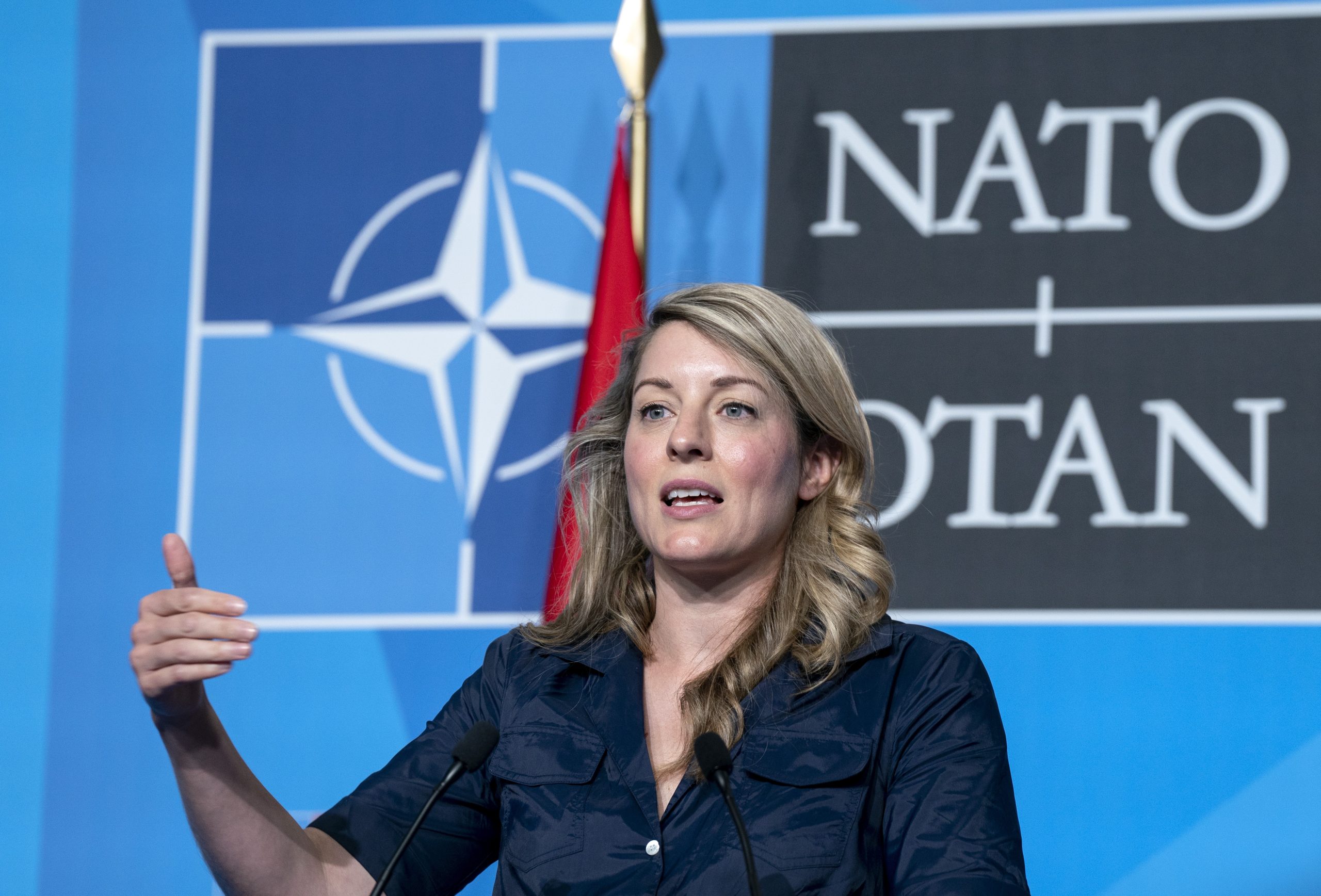Canada News
New round of sanctions hits Russian TV, media in crackdown on disinformation

Foreign Affairs Minister Melanie Joly responds to a question during a news conference at the NATO Summit in Madrid on Wednesday, June 29, 2022. Canada has imposed a new round of sanctions on Russia’s media machine designed to puncture disinformation campaigns about the war in Ukraine. THE CANADIAN PRESS/Paul Chiasson
OTTAWA — Canada has imposed a new round of sanctions on Russia’s media machine designed to puncture disinformation campaigns about the war in Ukraine.
The sanctions target Russian news agencies, TV stations and journalists, including Petr Akopov, who has written approvingly about President Vladimir Putin’s rationale for the invasion of Ukraine, and Tigran Keosayan, a pro-Kremlin television presenter.
The sanctions come as Ottawa launched a web page correcting disinformation about the invasion of Ukraine and “countering it with facts.”
Global Affairs Canada said in a statement that the site will be continually updated to “shed light on how the Russian regime is using lies to justify its illegal, unprovoked and unjustifiable invasion of Ukraine.”
Among the 29 people on the latest sanctions list is Vladimir Sungorkin, editor-in-chief of Komsomolskaya Pravda, described by Putin as his favourite newspaper.
Russian broadcaster RT has already been banned from Canada’s airwaves after ministers accused it of spreading Kremlin-inspired propaganda about the invasion of Ukraine.
But the latest round of sanctions hits RT directly as well as Russian broadcasters Sputnik, Channel One Russia and the All-Russia State Television and Radio Broadcasting Company (VGTRK), whose chief executive, Oleg Dobrodeev, is also sanctioned.
The long-established Russian news agency TASS is also on this latest list, as well as Gazprom Media, which owns a string of TV and radio stations.
Foreign Affairs Minister Mélanie Joly said in a statement that “the Russian propaganda machine must answer for its lies.”
“Canada is committed to fighting disinformation wherever and whenever it is found,” she said. “Today, we make it clear to those who peddle deception: you will be held accountable. Canada stands with Ukraine.”
The new sanctions list also includes Russian author and journalist Yevgeniy Prilepin, and TV host and documentary maker Arkady Mamontov as well as Irina Volk, a well-known Russian ministry spokeswoman.
Since Russia’s invasion of Ukraine in February, Canada has imposed sanctions on more than 1,150 people and organizations in Russia, Belarus and Ukraine.
It has co-ordinated sanctions with allies in the European Union as well as with the United States and the United Kingdom to stop Russians from exploiting loopholes.
Global Affairs Canada said the fresh wave of sanctions against Russia targets “state-sponsored disinformation and propaganda agents.”
Joly is currently attending the G20 summit of foreign ministers in Bali, Indonesia, which is also being attended by Russia’s foreign minister, Sergey Lavrov.
She told The Canadian Press she planned to call out Russian lies and confront Lavrov with facts at the summit, and would not shake his hand.
In March, Joly joined many others in walking out of a United Nations meeting in Geneva when Lavrov, whom Canada had sanctioned days earlier, began speaking.
As announced by Prime Minister Justin Trudeau at the G7 summit late last month in Elmau, Germany, Canada has also banned certain gold imports from Russia.
This is to stop Russians from converting cash into gold to get around previous sanctions.
This report by The Canadian Press was first published July 8, 2022.
Marie Woolf, The Canadian Press





















